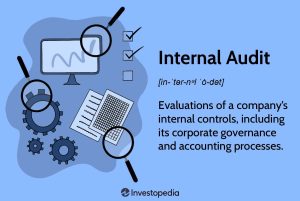Understanding the Requirements for an Audit
In the world of finance and business, audits play a pivotal role in ensuring transparency, accuracy, and compliance with regulations. However, conducting an audit isn’t a simple task. It involves a series of stringent requirements to ensure its effectiveness and reliability. What is the requirement for an audit?
Definition of an Audit
An audit is a systematic examination of financial records, transactions, processes, and controls of an organization by an independent auditor. The primary objective of an audit is to provide assurance to stakeholders regarding the accuracy and fairness of the financial statements.
Requirements for an Audit
1. Independence and Objectivity
One of the fundamental requirements for an audit is the independence and objectivity of the auditor. The auditor must be free from any bias or conflicts of interest that could impair their judgment. Independence ensures that the audit opinion is unbiased and trustworthy.

2. Professional Competence and Due Care
Auditors must possess the necessary professional competence and skills to perform the audit effectively. They should stay updated with the latest accounting standards, regulations, and auditing techniques. Additionally, auditors must exercise due care by conducting thorough examinations and exercising professional skepticism.
3. Compliance with Auditing Standards
Audits must comply with established auditing standards, such as Generally Accepted Auditing Standards (GAAS) or International Standards on Auditing (ISA). These standards provide guidelines and procedures for conducting audits, ensuring consistency and quality across different audits.
4. Understanding of the Business and Industry
Auditors need to have a deep understanding of the business operations, industry dynamics, and regulatory environment in which the audited entity operates. This understanding helps auditors identify and assess relevant risks and tailor their audit procedures accordingly.
5. Documentation and Evidence
Documentation is a crucial aspect of an audit process. Auditors are required to maintain comprehensive documentation of their audit procedures, findings, and conclusions. Additionally, auditors must gather sufficient and appropriate audit evidence to support their opinions and conclusions.
6. Risk Assessment and Materiality
Auditors are required to assess the risks of material misstatement in the financial statements and plan their audit procedures accordingly. They should focus their efforts on areas with higher risks and allocate resources effectively to address those risks.
7. Communication and Reporting
Clear and effective communication is essential throughout the audit process. Auditors must communicate with management and those charged with governance to obtain necessary information and address any concerns. Furthermore, auditors are required to issue a formal audit report that includes their findings, opinions, and recommendations.
8. Compliance with Legal and Regulatory Requirements
Audits must comply with relevant legal and regulatory requirements, including those set forth by regulatory bodies such as the Securities and Exchange Commission (SEC) or the Financial Reporting Council (FRC). Failure to comply with these requirements can result in legal sanctions and reputational damage.

Conclusion
In conclusion, conducting an audit requires adherence to various requirements to ensure its credibility, reliability, and effectiveness. From independence and professional competence to compliance with auditing standards and regulatory requirements, auditors must navigate through a complex landscape to fulfill their responsibilities. By meeting these requirements, audits serve as valuable tools for enhancing transparency, accountability, and trust in financial reporting. For online SMSF auditing services read here.
By following these guidelines, auditors can ensure that their audits meet the necessary standards and provide meaningful insights to stakeholders. As businesses continue to evolve and face new challenges, the importance of rigorous and thorough audits cannot be overstated.
Incorporating the latest technologies and methodologies can further enhance the efficiency and effectiveness of audits, ultimately benefiting both auditors and the organizations they serve. As the business landscape continues to evolve, audits will remain indispensable for promoting integrity and confidence in financial reporting.
By understanding and adhering to the requirements outlined above, auditors can uphold the principles of transparency, accountability, and trust that underpin the auditing profession.


